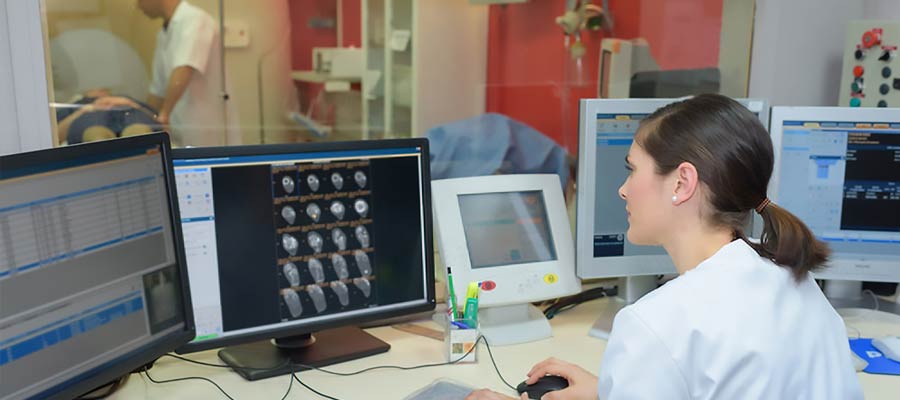An MRI training course is important for those looking to become MRI techs for a variety of reasons. First of all, you need to take a course with certain specifications decided by the ARRT. To become an MRI tech, you also have to take the registry exam. Secondly, you’ll learn how to operate an MRI machine efficiently.
You’ll find MRI training courses that vary from one another, but most will include certain elements. These elements are the core of any training course. Without them, a course would lose its value and benefit to its participants.
Basic Biology Principles in MRI Training Courses
MRI training has to include some information on human biology. After all, your main job will be taking images of certain body parts, and you need to be adept at human anatomy. Without learning biology, you’ll be taking images of things you know nothing about. That wouldn’t be very efficient, and it wouldn’t make you an expert at your job.
To a lesser extent, you’ll learn some pathology. This includes how different diseases can alter organs. Why is this valuable? You won’t always be scanning people who are completely healthy. Knowing how to identify a cirrhotic liver or enlarged spleen, for example, would be integral. Diseased organs shouldn’t confuse you since you can expect to encounter them a lot.
Physics and How MRIs Work
You’ll learn about magnetism and other topics related to physics during an MRI course. It’s best to understand how an MRI works to know how to operate it properly. Your knowledge in physics should enable you to capture better images too. Expect to know about how things are like when you’re using MRIs. You should also know when you should not to use them.
Safety and Precautions
MRIs are not harmless. They are associated with complications and potential dangers. It’s essential that all MRI techs know these dangers and how to handle them. After all, they’ll be working with these machines daily. The bare minimum is knowing how to recognize a problem and when to call for help.
Patient Interaction and Communication
MRI training programs hold patient communication and interaction in very high regard. An MRI tech isn’t someone who sits behind a screen and takes images. They do so much more than that. MRI techs talk to patients before scans and interview them about their medical history and any potential allergies.
It’s also up to the MRI tech to explain to the patient what’s about to happen. Most people are terrified during their MRI scans. It takes a certain level of proficiency and skill to calm your patients down and ease their nerves while also properly positioning them to capture the best images possible.
MRI techs have a complex job and are essential team members of the healthcare system. They take care of patients just like doctors, nurses, and others. An MRI tech who doesn’t know how to interact with patients or treats them poorly will certainly stand out, but for all the wrong reasons. At Pulse Radiology, our MRI training is aimed at making you stand out for the right ones.


